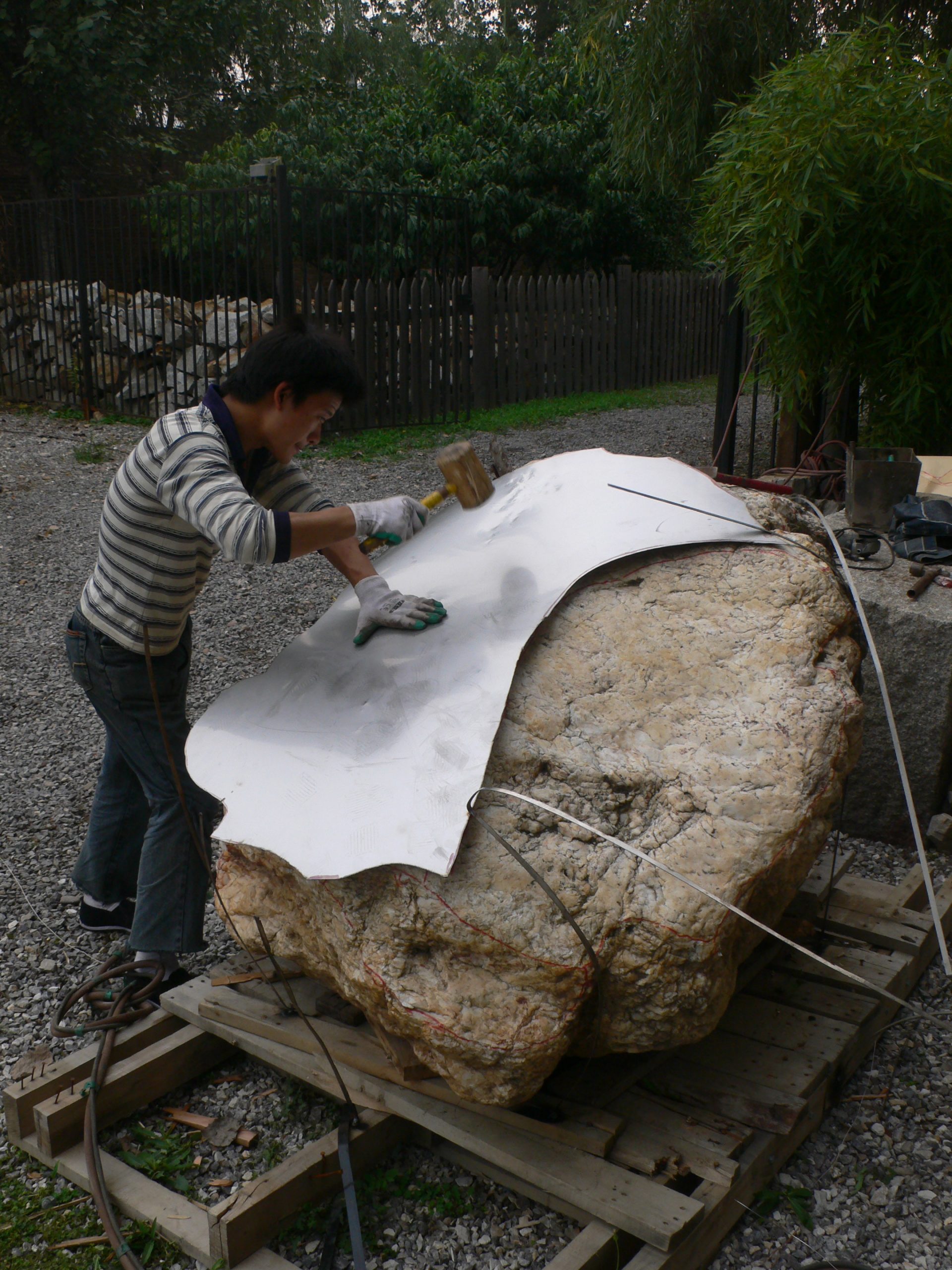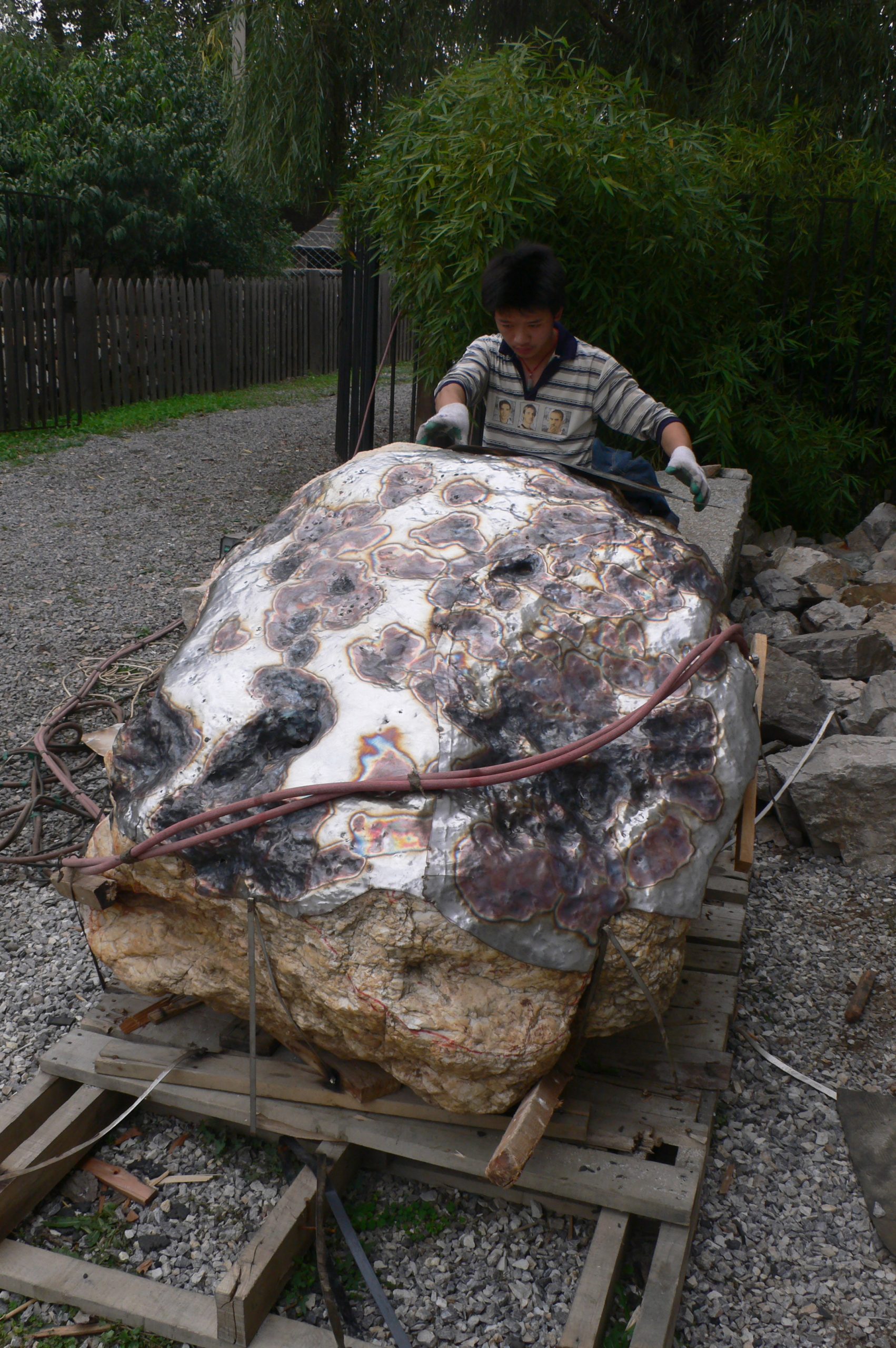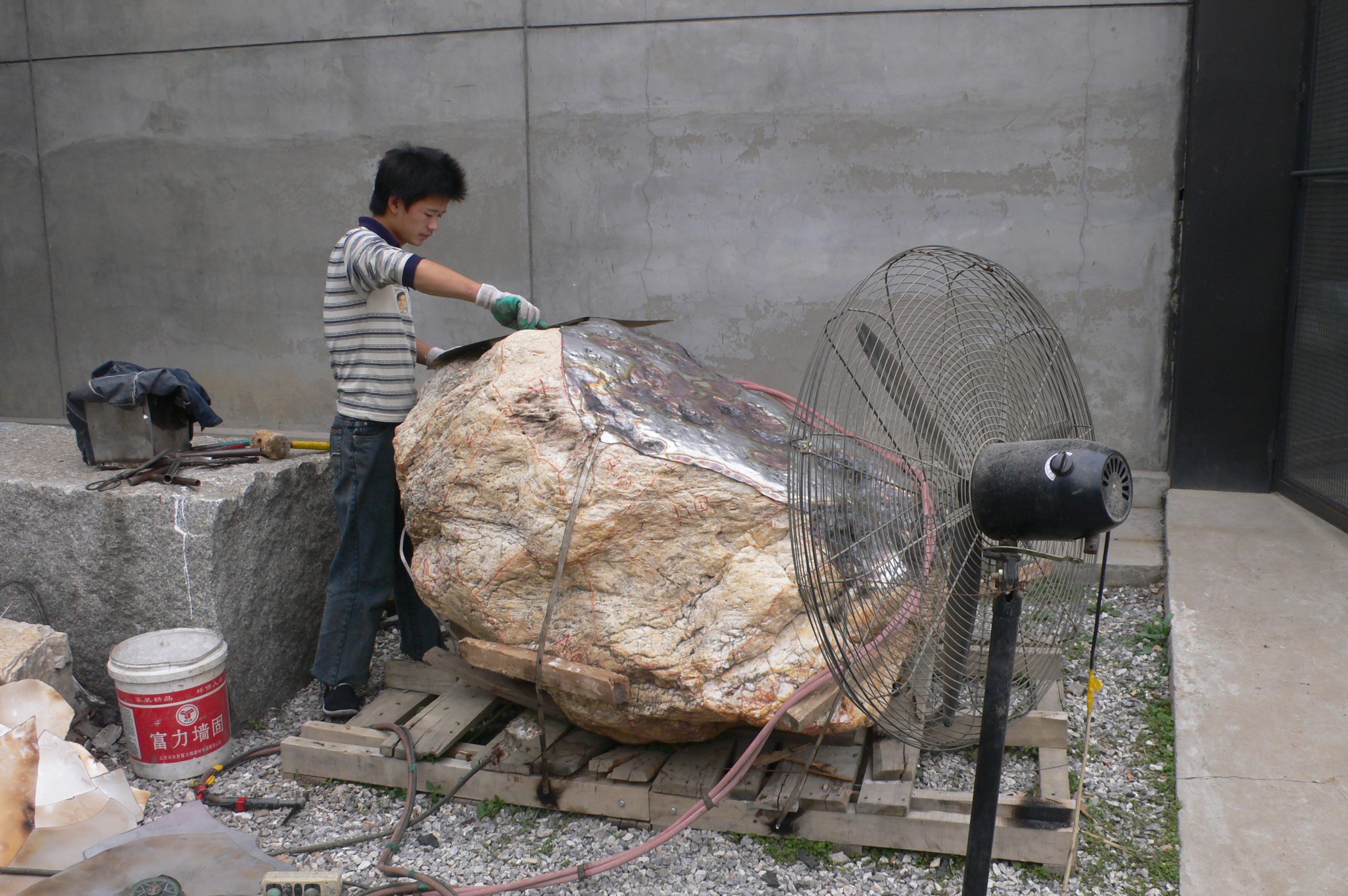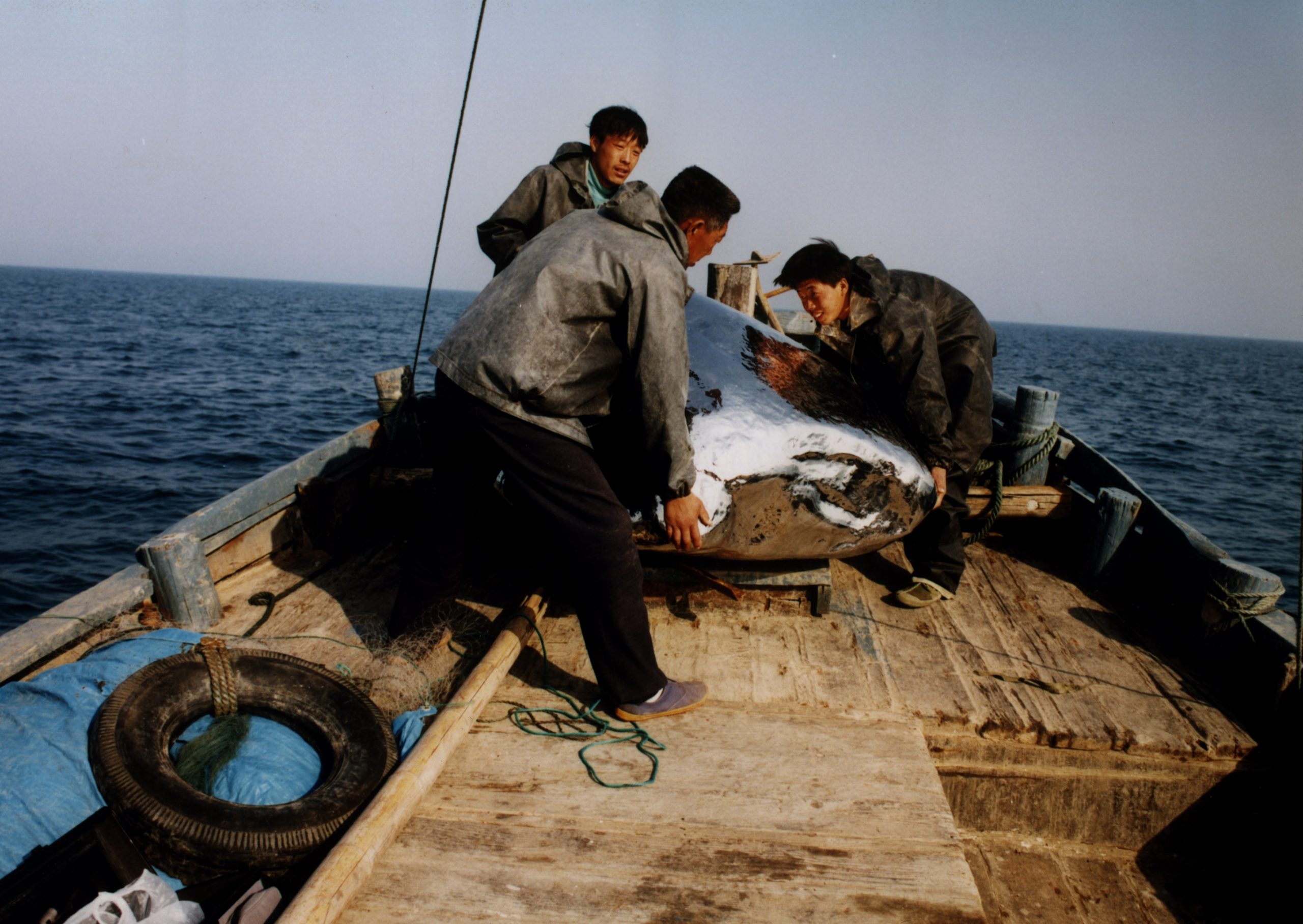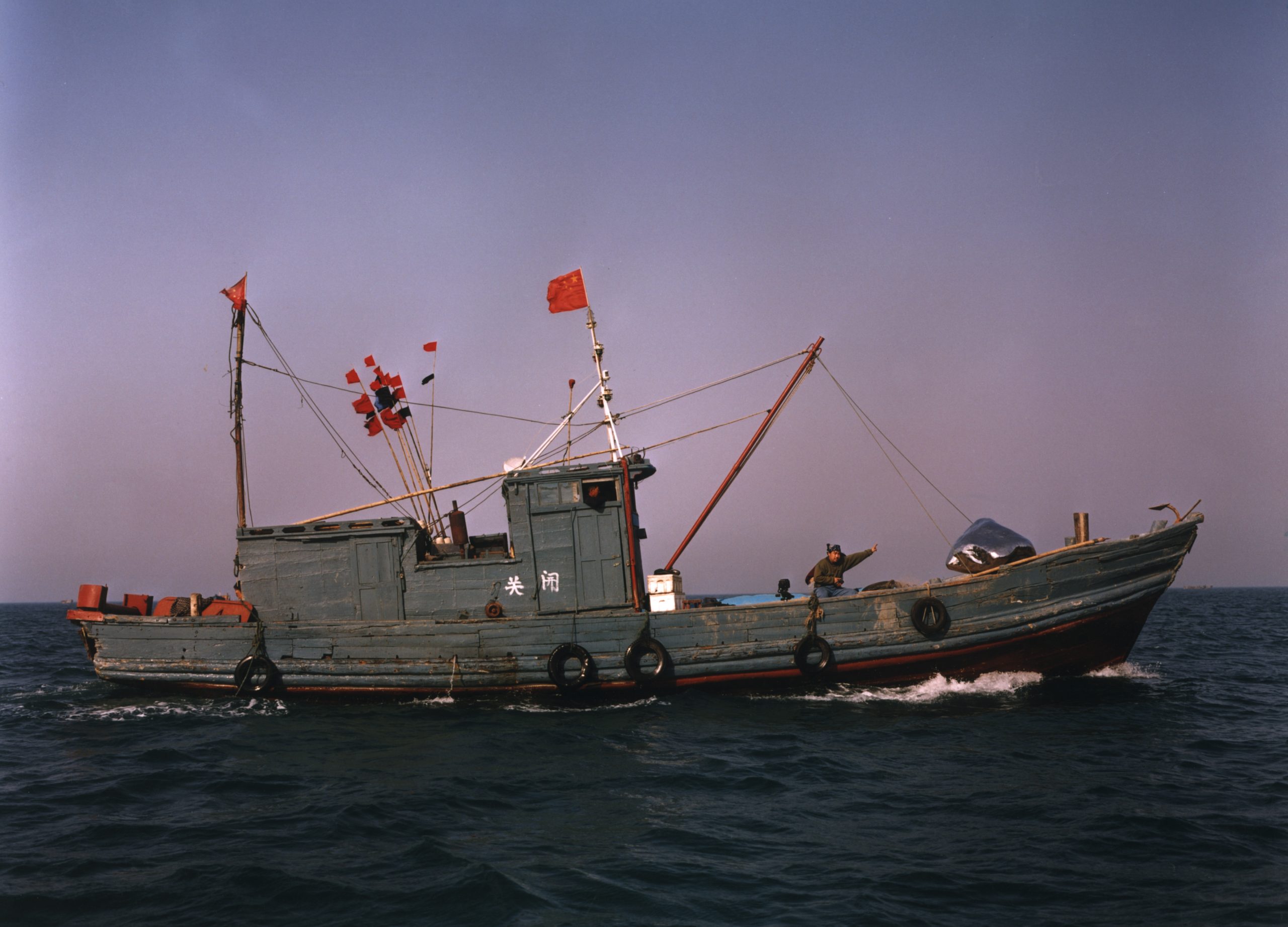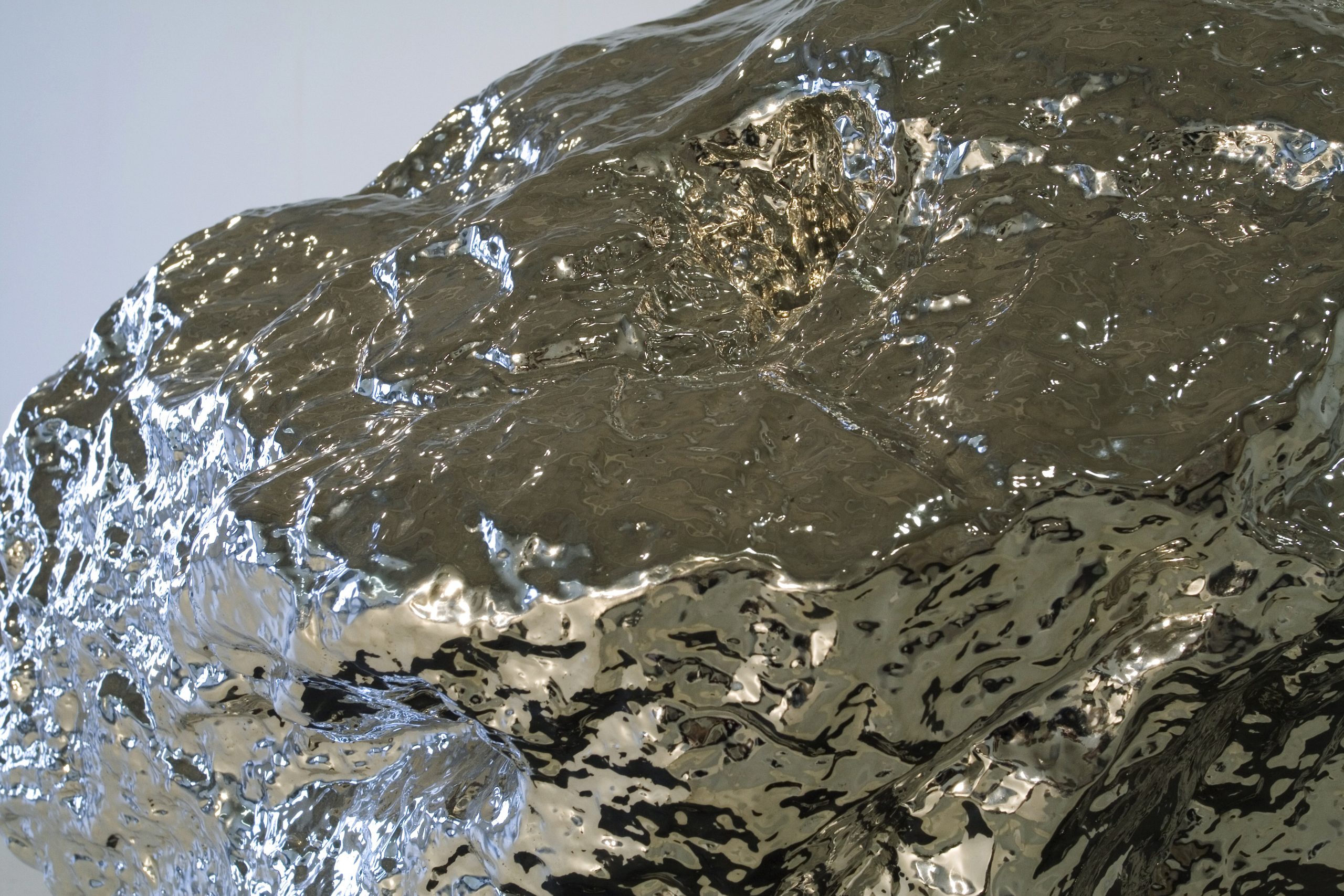
Artist Profile
The prolific sculptor Zhan Wang is renowned for his meticulously made stainless-steel copies of scholars’ rocks. Historically, scholars’ rocks were showcased in Chinese gardens and considered microcosms of the universe. Reflecting upon the rapid economic development and urbanization that characterized China in the 1990s, however, Zhan sought to “update” this traditional object for contemporary society through the use of a modern industrial material—stainless steel.
The work Ornamental Rock was produced using Zhan’s characteristic method of working with stainless steel. By hammering a pliable sheet of steel across the original rock’s surface, Zhan created a copy that reproduced every minute undulation of the surface of the original. Meant to be placed throughout Beijing’s cityscape, this rock and others like it would have reflected the surrounding skyscrapers, rendering a distorted version of Beijing’s rapidly growing urban fabric upon its surface.
In another work, Gold Mountain, Zhan used the same technique but modeled his stainless-steel copy after a boulder originally found in the Sierra Nevada mountains. The work is named after the Chinese word for San Francisco, jiujinshan (literally, “Old Gold Mountain”), which was first used during the California Gold Rush. Initially created for the Asian Art Museum in San Francisco, Gold Mountain recalls the thousands of Chinese immigrants who broke rocks and panned for gold in the mid-nineteenth century.
In 2000, Zhan broadened his methods to create the conceptually rich performance project Beyond 12 Nautical Miles—Floating Rock Drifts on the Open Sea. For this work, the artist transported one of his hollow stainless-steel rocks and left it to drift in international waters. The work’s title refers to the point beyond which any country can claim open waters as its territory. Left to drift wherever the currents take it, the rock has the following passage inscribed in five different languages upon its surface:
This is a piece of art created specifically to be exhibited in the open sea.
If by any chance you pick it up, please put it back into the ocean.
The artist thanks you from afar.

“The material’s glittering surface, ostentatious glamour, and illusory appearance make it an ideal medium to convey new dreams.”—Zhan Wang 1
Footnotes
- 1
Zhan Wang, “Jia shan shi” (Ornamental rock), cited in Shoujie dangdai yishu xueshu yaoqing zhan (The First Academic Exhibition of Chinese Contemporary Art) (Hong Kong: China Oil Painting Gallery, 1996), 114. A manuscript in Zhan Wang’s archive dates this text to November 26, 1995.
Works on View
Ornamental Rock, 1996
Stainless steel
Without base: 81 1/2 x 32 1/2 x 36 in. (207 x 82.5 x 91.4 cm)
Diameter of base: 35 x 20 in. (88.9 x 50.8 cm)
Smart Museum of Art, The University of Chicago, Gift of Carl Rungius, by exchange, 2000.24
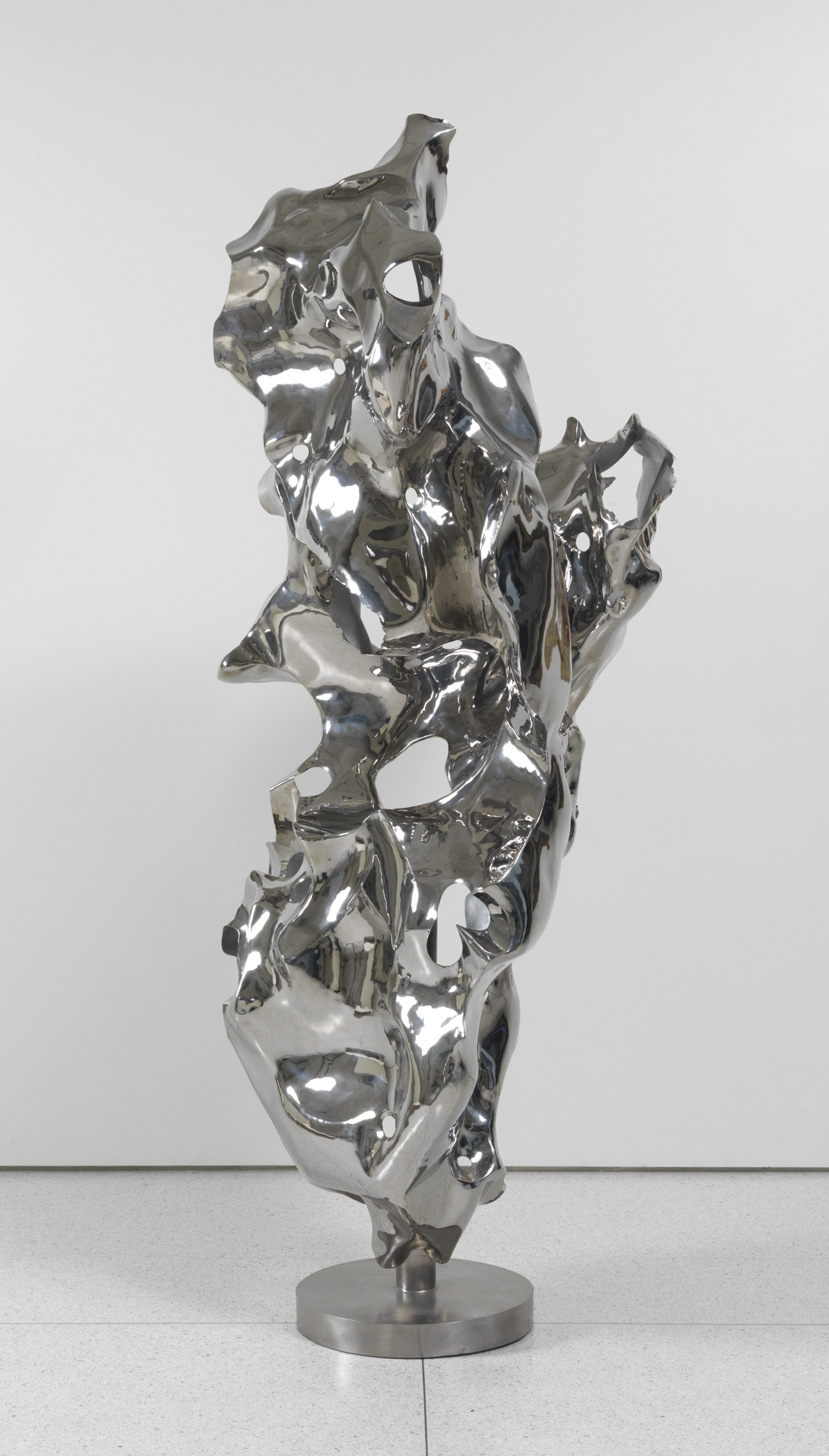
Gold Mountain, 2007
Stone and stainless steel
Stone: 42 x 50 x 63 in. (106.7 x 127 x 160 cm)
Stainless steel: 42 x 50 x 63 in. (106.7 x 127 x 160 cm)
Courtesy of the artist and Haines Gallery
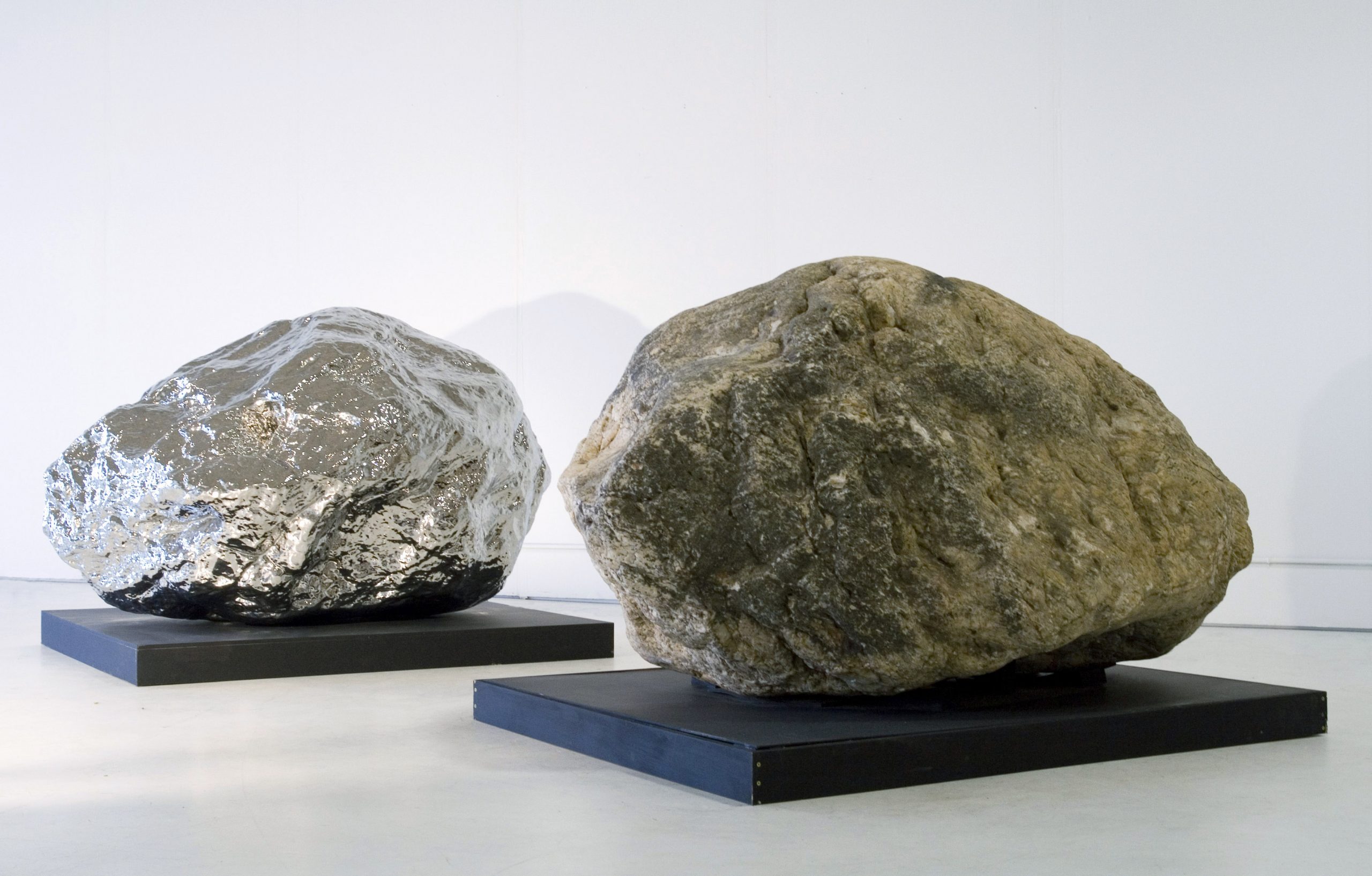
Beyond 12 Nautical Miles—Floating Rock Drifts on the Open Sea, 2000
Single-channel video, 8:36 minutes running time
Collection of the artist

Working Process
